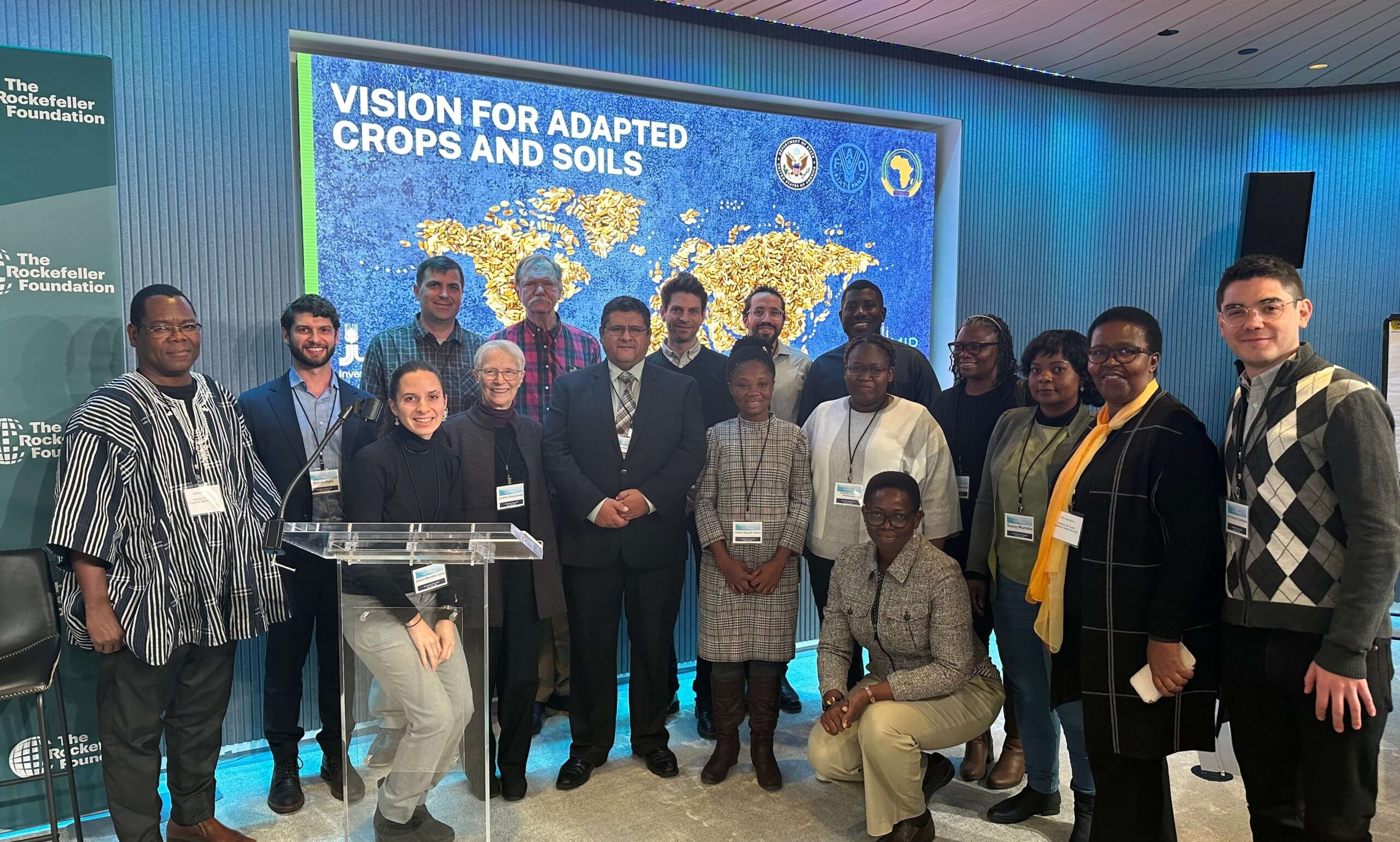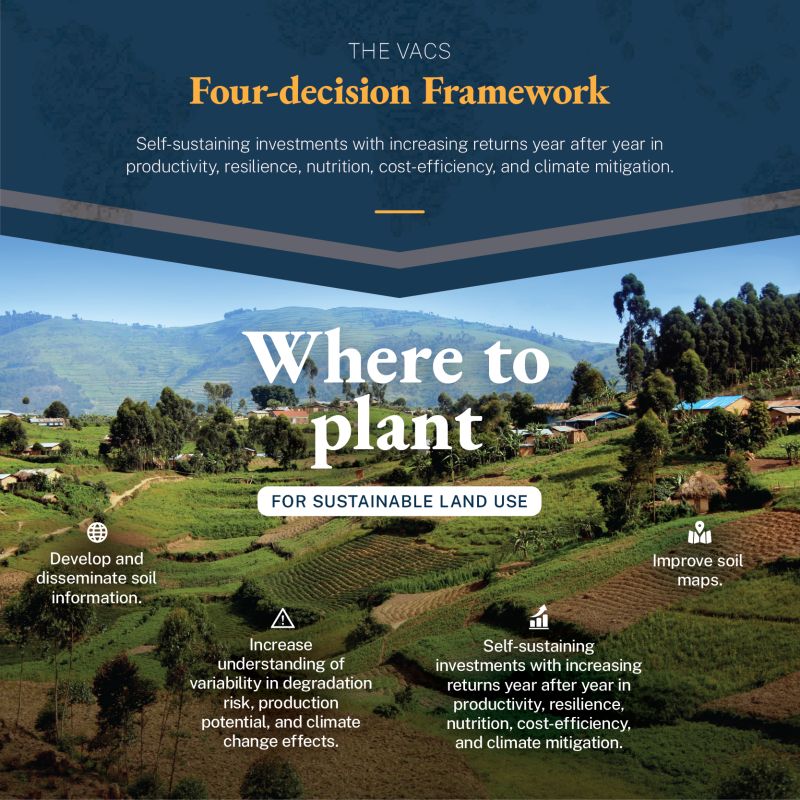- The Answers to the Questions asked during the Webinar will be made available here
- See below recording
The Vision for Adapted Crops and Soils (VACS) was launched in February 2023, in partnership with the African Union, FAO, and U.S. Department of State, with the goal of advancing more climate-resilient and nutritious food systems in Africa.
- A team of researchers from AgMIP, based at the Climate School, participate in VACS, conducting research to better understand how African opportunity crops can be used to address the challenges that African food systems face under climate change.
- Why and how did nutritionists, plant breeders, climate modelers, soil scientists, economists – 60 global experts – decide on these crops.
VACS is part of Feed the Future, the U.S. government's global hunger and food security initiative, and supports the implementation of the U.S. Global Food Security Strategy (2022-2026). It contributes to the President's Emergency Plan for Adaptation and Resilience (PREPARE) and advances the commitments made in the U.S.-AU Joint Statement on Food Security at the 2023 U.S.-Africa Leaders Summit.
To join the community of practice GlobalFoodSecurity@state.gov
- Namukolo Covic, ILRI, President of African Nutrition Society
- Cynthia Rosenzweig, AgMIP, Co-Founder; Columbia Climate School
- Ibrahim Assane Mayaki, African Union Special Envoy for Food Systems
- Lynnette Neufeld, FAO, Director of the Food and Nutrition Division
- Cary Fowler, U.S. Special Envoy for Global Food Security
- Roy Steiner, The Rockefeller Foundation, Senior Vice President, Food Initiative
- Laura Aghilarre, Deputy Director General for Development Cooperation, Italian Ministry of Foreign Affairs
Resource:
VACS (2024) Vision for Adapted Crops and Soils (VACS) Research in Action #37 p.
Scaling up production
and access to more diverse, climate-resilient crop varieties that support good nutrition and better livelihoods is
a goal shared across national, regional, and international
communities.
VACS has gained important visibility,
including from the U.S. Secretary of State, Antony
Blinken, which has galvanized further international
support.
This report outlines the guiding concepts of the
VACS approach, provides an overview of the research
conducted as part of VACS through crop-modeling and
evidence synthesis approaches, and recommends areas
of focus for the movement going forward as well as ways
to engage in VACS.
VACS (2024) Opportunity Crop Profiles for the Vision for Adapted Crops and Soils (VACS) in Africa #78 p.
This report is an in-depth crop analysis designed to provide a rigorous evidence base to the global community. By conducting a holistic assessment of a variety of wellresearched crops (e.g., maize, cassava, soybean and tomato), compared to a non-exhaustive list of neglected and underutilized crops (e.g., opportunity crops, such as bambara groundnut and fonio), it aims to provide actionable insights into the crops that are best equipped to provide stable and nutritious diets in the face of climate variability and extreme weather events in geographies across the continent.
This piece of research is not meant to be exhaustive or exclusionary towards considering a broader set of crops. This process and the findings are a stepping-stone to provide an evidence-based assessment on behalf of a global agenda.
This report was produced alongside the VACS: Research in Action Report, (also known as the Summary Report) which outlines the guiding concepts of the VACS approach, overviews research conducted to date to expand the evidence base, recommends areas of focus for the movement going forward, and ways to engage in VACS. The Summary Report can be found here
Previous blog posts on VACS:
- 25 July 2023. Value Chains for Resilient Food Systems
- 11 September 2023. USAID’s Agricultural, Nutrition, and Food System Programming
- 20 September 2023. The future of food security in Africa: The Agri-Tech solution . This event, hosted by the Africa Center in partnership with the Policy Center of the New South, launched a report featuring new research and recommendations on agritech solutions.
- 28 - 29 November 2023. New York. Rockefeller Foundation. Phase2 Technical workshop of the Vision for Adapted Crops and Soil (VACS)
Forthcoming:
23 April 2024. VACS Community of Practice Webinar: Optimizing the Vision for Adapted Crops and Soils - Hosted by FARA






No comments:
Post a Comment